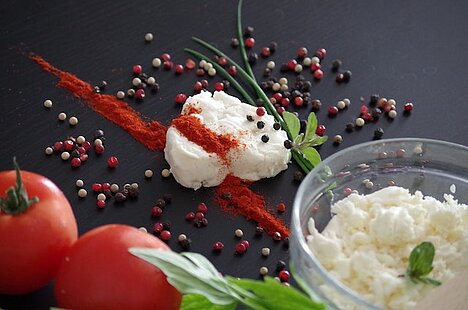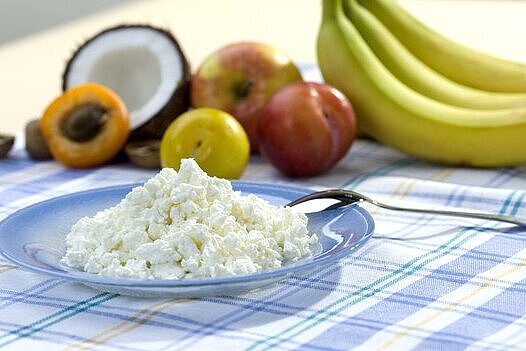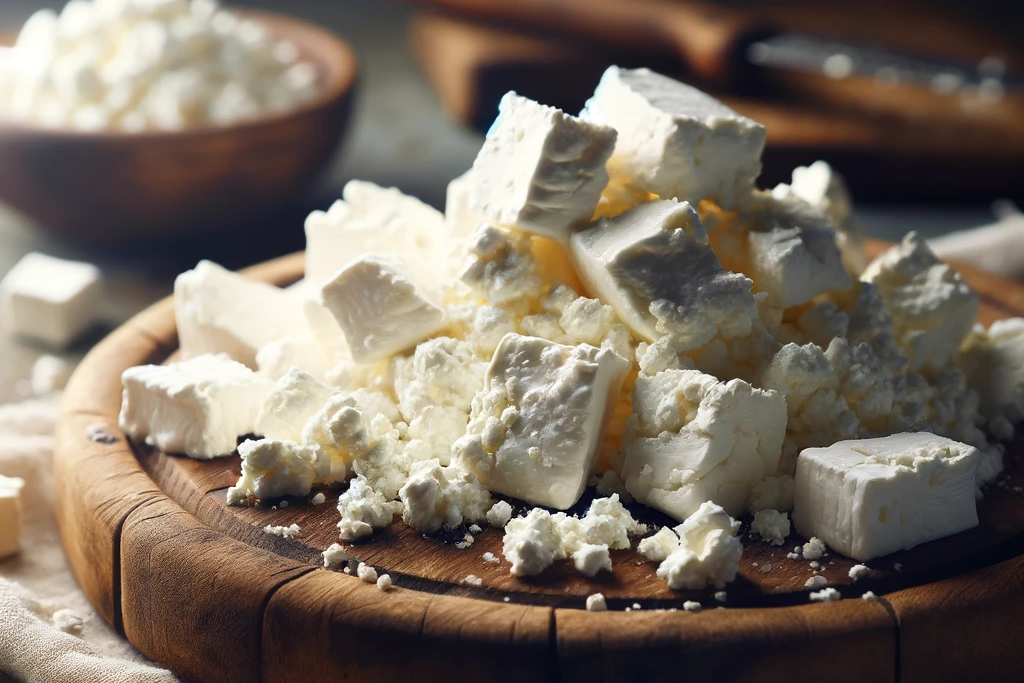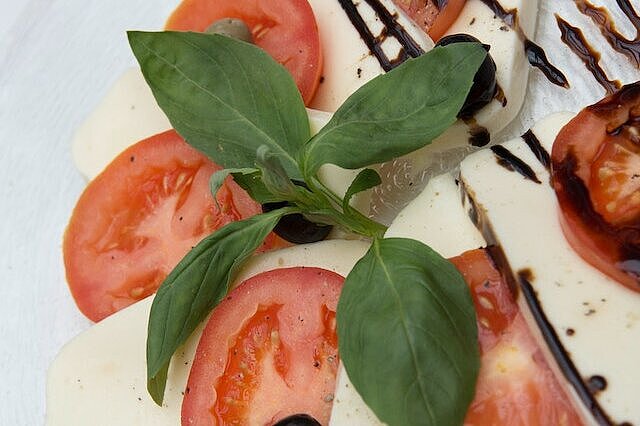Cottage cheese

What is cottage cheese?
Cottage cheese is a fresh cheese made from pasteurized cow's milk. The milk is mixed with lactic acid bacteria and rennet, which causes the milk to curdle and separate into solid cheese grains and liquid whey. The cheese grains are then drained and mixed with salt and cream. The result is a grainy cream cheese with a mild taste.
Cottage cheese has a long tradition and was already being made in ancient Egypt and Greece. In Germany, it is also known as granular cream cheese. The name cottage cheese comes from the English term cottage cheese, which refers to the small country estates where it was originally produced.
Why is cottage cheese good for dogs?
Cottage cheese has many health benefits for dogs. It is low in fat and calories, but high in protein, calcium, magnesium and vitamin D. These nutrients are important for dogs' muscles, bones, teeth and nerves. In addition, cottage cheese contains comparatively little lactose, the milk sugar that many dogs cannot tolerate. You can even buy lactose-free cottage cheese.
Cottage cheese can also have a positive effect on dogs' digestion. It acts as a probiotic and promotes the growth of good intestinal bacteria. This can help to combat or prevent diarrhea, flatulence or giardia. Cottage cheese can also be used as a light diet when your dog is ill or convalescing.
How do you feed cottage cheese to dogs?
Cottage cheese is not a complete food for dogs, but a supplement. It should therefore not make up more than 10 % of the daily food intake. You can give your dog cottage cheese on its own or mix it with other ingredients. For example, you can mix cooked potatoes, rice, carrots or chicken with cottage cheese. This makes a tasty and healthy meal for your dog.
Before you feed your dog cottage cheese, however, you should get him used to it slowly. Only give him a small amount at first and observe how he reacts to it. Some dogs can still have lactose intolerance or allergies. If your dog develops stomach pain, diarrhea or vomiting, you should stop giving him cottage cheese.
Cottage cheese is a fresh cheese made from cow's milk and has many benefits for dogs, including low fat and calories, high protein, calcium, magnesium and vitamin D. It is low in lactose and contains probiotics to aid digestion. However, cottage cheese should only be used as a supplement and should not make up more than 10% of the daily food intake. Feeding should be discontinued in the event of possible intolerances.
Properties 5
Are you looking for other ingredients with a specific property?
Just click on them to find more.
If you notice any signs of hypersensitivity or poisoning in your dog, you should see your vet immediately. We are not a substitute for a vet, but we try to be as accurate as possible. Every dog reacts differently and we recommend you get a second opinion or consult your vet if in doubt.
Stay healthy and take good care of your four-legged friend!😊
Similar to Cottage cheese
Ricotta is non-toxic to dogs and can be used in small amounts as a treat or to administer medication. Ricotta contains a lot of protein, which is important for muscle building and cell regeneration....
Quark is a fresh cheese made from milk. The milk is curdled by lactic acid bacteria or rennet and the whey is then separated out. The result is a white, creamy cheese that varies in firmness...
Feta is a soft cheese that originated in Greece and is matured in brine. It has a white color and a crumbly texture. Feta can be made from pure sheep's milk or from a mixture of sheep's and goat's...
Mozzarella is a fresh cheese that originally comes from Italy. It is made from pasteurized or unpasteurized milk, which is first curdled with rennet. The solid mass is then kneaded in hot water and...



